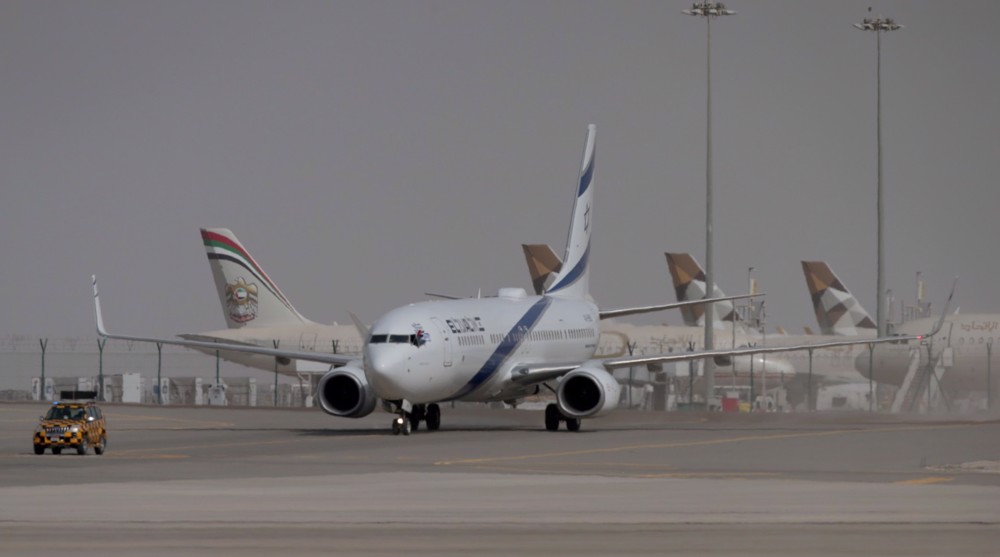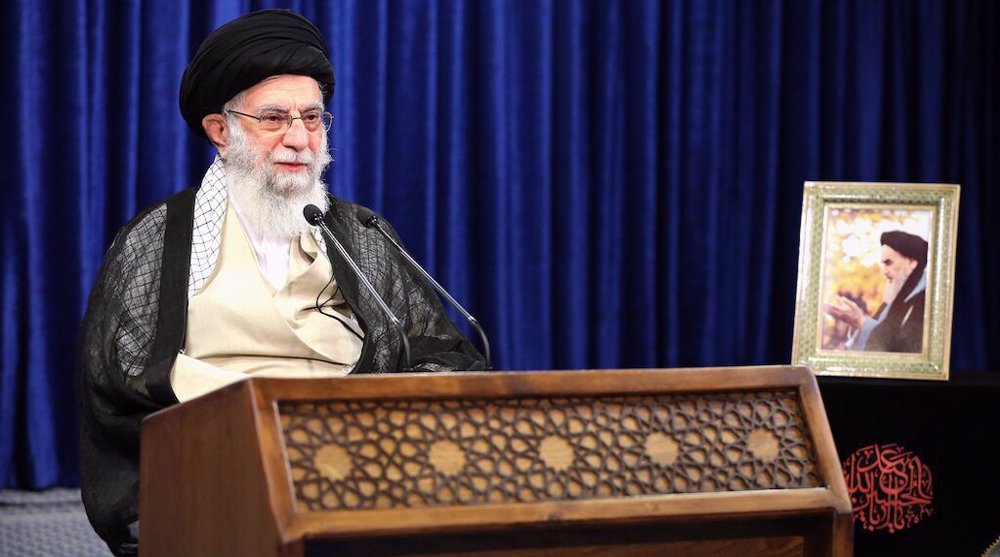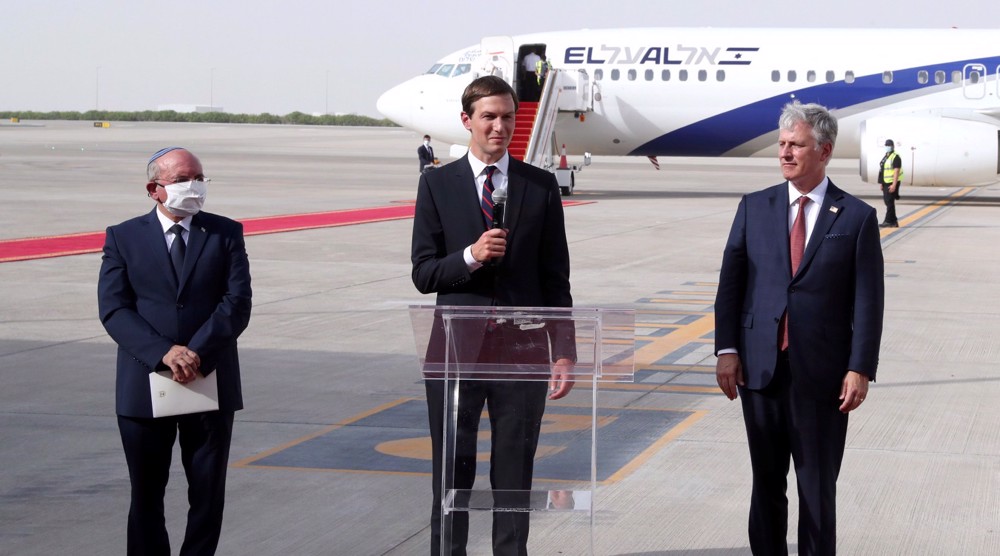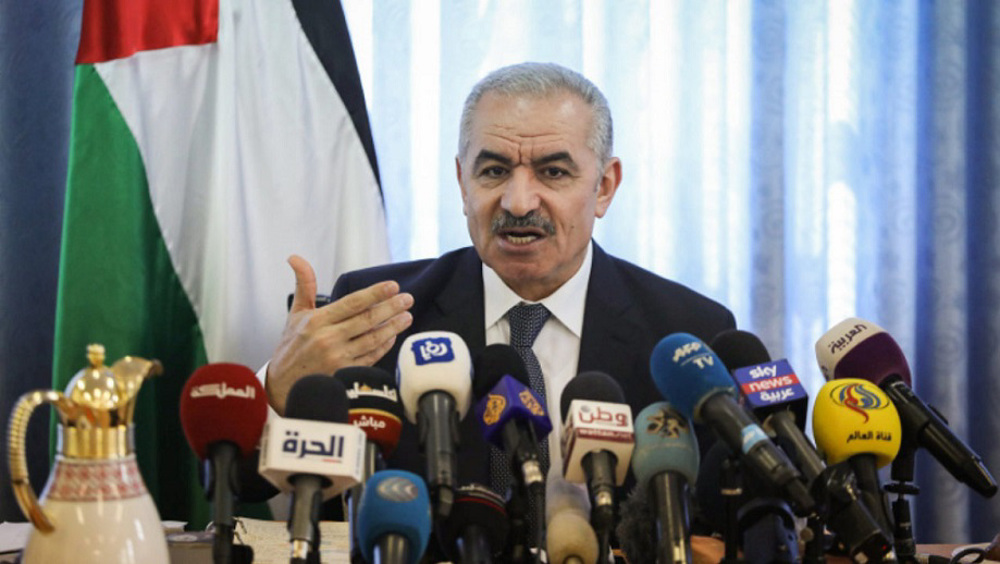Saudi Arabia officially opens airspace to all UAE-Israel flights
Walking further away from the Palestinian cause, Saudi Arabia has opened its airspace to any flights going to and from the United Arab Emirates (UAE) to cross over its territory, which means granting Israel access to the kingdom’s skies.
The Saudi Press Agency (SPA) reported on Wednesday that the kingdom’s aviation authority had taken the decision in response to a request by the UAE.
“An official source at the General Authority of Civil Aviation (GACA) has stated that the Authority approved the request received from the General Civil Aviation Authority in the United Arab Emirates, which includes the desire to allow flights coming to and departing from the United Arab Emirates to all countries to pass through the Kingdom of Saudi Arabia’s airspace,” the report said.
The development came two days after the first direct flight from Tel Aviv to Abu Dhabi passed through Saudi airspace.
El Al Flight 971 took a joint US-Israeli delegation to the UAE capital for talks with Emirati officials to finalize an agreement reached last month between Abu Dhabi and Tel Aviv to establish full diplomatic relations.
Tuesday’s return flight from Abu Dhabi to Tel Aviv was also allowed to overfly Saudi Arabia, although, unlike Monday’s flight, no American delegation was on board.
Saudi Arabia had previously banned flights to and from the occupied territories from using its airspace, though since 2018 it has permitted Air India to fly over the country to Tel Aviv.
Israeli Prime Minister Benjamin Netanyahu hailed the Saudi announcement as a “breakthrough” that will help the regime’s economy and reduce airfares.
Netanyahu also thanked Jared Kushner, US President Donald Trump’s son-in-law and adviser, and Abu Dhabi Crown Prince Sheikh Mohammed bin Zayed Al Nahyan for what he called their “important contribution” in bringing about the new Saudi policy.
Kushner had been aboard Monday’s flight from Tel Aviv to Abu Dhabi, from where he went on to Bahrain, Saudi Arabia and Qatar to push for normalization with the occupying Israeli regime.
Meanwhile, Saudi Arabia’s Foreign Minister Faisal bin Farhan Al Saud took to twitter to claim that the opening of Saudi airspace to flights between Israel and the UAE does not change “the kingdom’s firm and established positions toward the Palestinian cause and the Palestinian people.”
He added that Riyadh “appreciates all efforts aimed at achieving a just and lasting peace in accordance with the Arab Peace Initiative,” a plan that envisions full normalization of ties between Tel Aviv and the Arab world in return for Israel’s withdrawal to the 1967 lines and the creation of a Palestinian state.
However, experts said Palestinian officials will see the Saudi move as yet another sign of waning Arab support for Palestine’s struggles against Israeli occupation.
“I believe Palestinian officials see this move as another indication of the increasingly weak Arab position vis-a-vis the Palestinian cause,” said Jehad Harb, an analyst of Palestinian politics.
Arab League rejects Palestine’s request for meeting: Report
In another development on Wednesday, Lebanon’s Al Mayadeen TV channel reported that the Arab League had rejected a request by Palestine to hold an urgent meeting on the UAE-Israel normalization accord due to Bahrain’s objection.
Citing diplomatic sources, the report also revealed efforts within the Arab League to persuade the Palestinians to accept Trump’s so-called “deal of the century” and destroy the Palestinian cause.
The sources, whose names were not mentioned in the report, said the Palestinians are being threatened by some influential countries with the support of wealthy states.
In an article published on Wednesday, The Middle East Monitor said the Arab League’s refusal to hold a meeting “was disrespectful towards the Palestinians, and suggests that the Arab world is more or less satisfied with the deal. The PA (Palestinian Authority) can rightly claim that it has lost Arab support and is now standing alone.”
The truth behind the normalization agreement is that “the UAE, along with the countries supporting it, have cast the Palestinian cause aside, and Israel can now benefit from its relations with “moderate” Arab counties, or even without them. Palestine is no longer a priority for the UAE and other Arab states,” the report added.
'Gaza has won': Social media users react to ceasefire with mix of relief, joy
Iran seeks South Korea’s assistance for AI, fiber-optic projects
VIDEO | Iran's 'Eqtedar' (Power) maneuver
Israel hits HTS military target in Syria for 1st time since fall of Assad
VIDEO | Press TV's news headlines
Israel has slaughtered 13,000 students in Gaza, West Bank
VIDEO | More Zionist than Zionists: Biden’s legacy to be defined by Gaza genocide
Hamas confirms handing approval of Gaza ceasefire deal to mediators




















 This makes it easy to access the Press TV website
This makes it easy to access the Press TV website